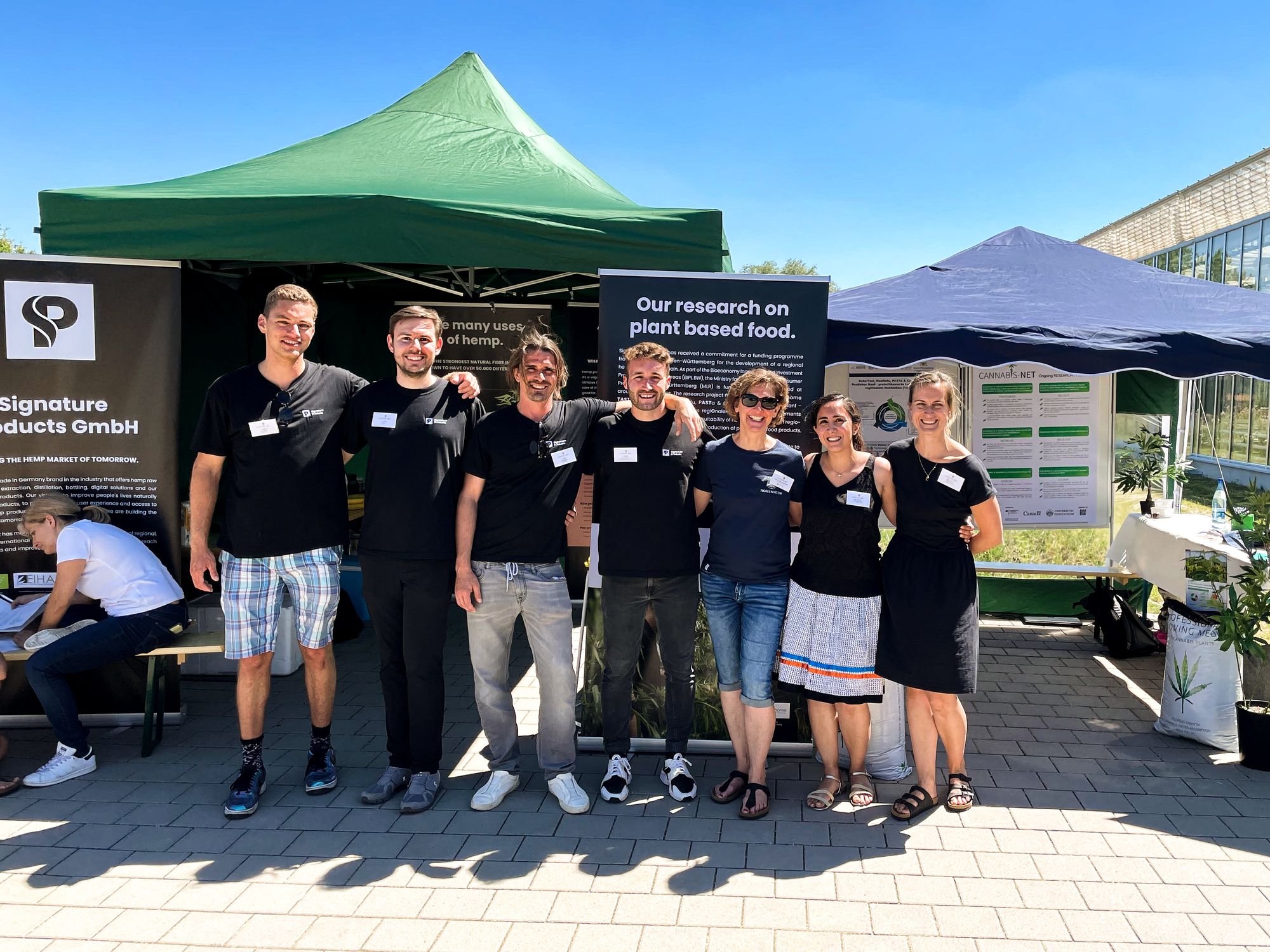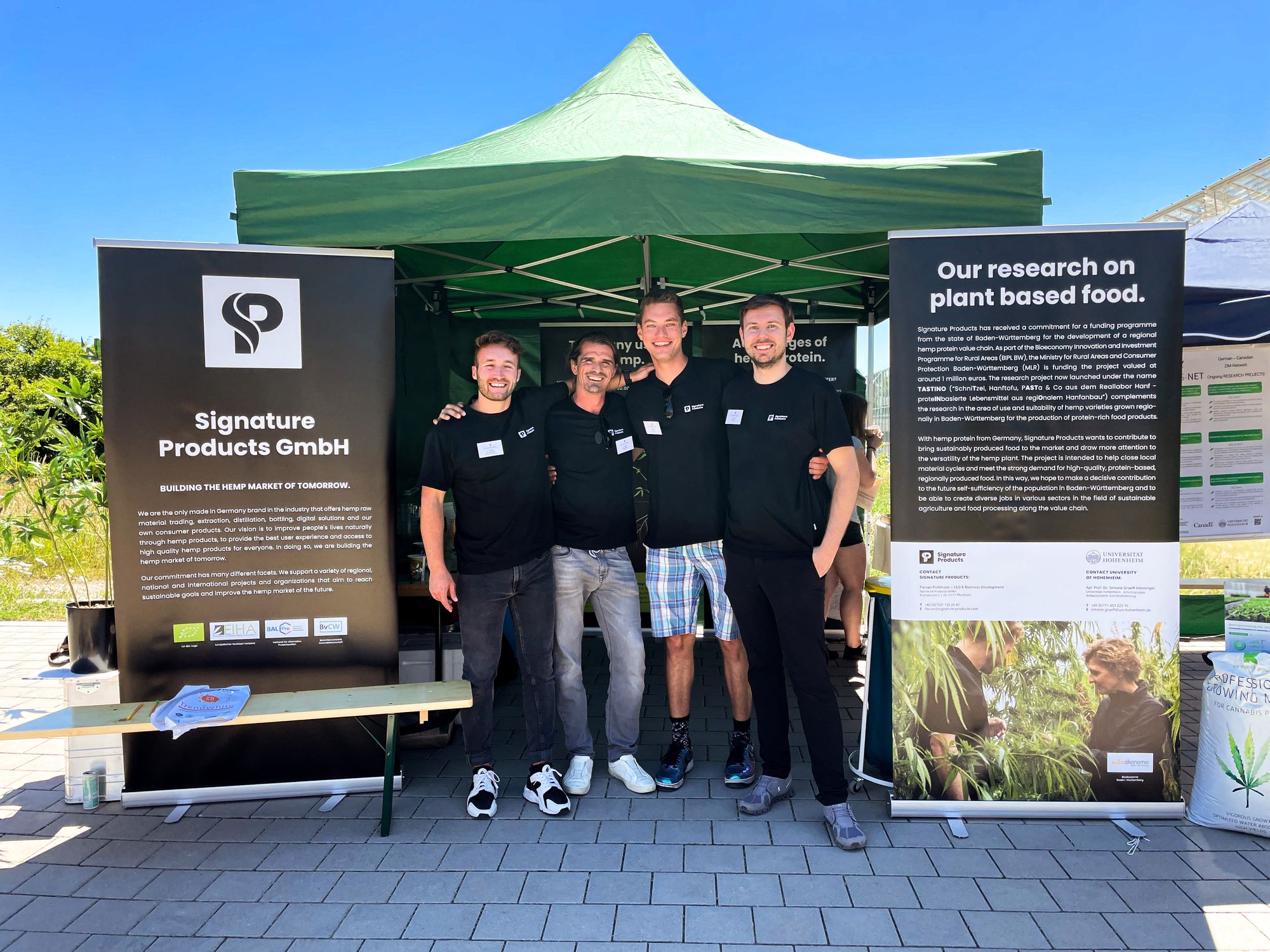Open Day at the University of Hohenheim
Our Signature Products team took part in the Open Day at the University of Hohenheim.

On Saturday, July 2nd, 2022, the Open Day was celebrated on the University of Hohenheim as part of the academic university festival under the motto "Sustainability". Not only students from the faculties of natural sciences, economics and social sciences as well as agricultural sciences, but also researchers and companies collaborating with the university were able to present their work and future projects to a wider audience. In addition to students and alumni, people from the region as well as important personalities from business and politics were invited. Since the University of Hohenheim places a strong focus on agriculture, many farmers also came to visit to find out more about the latest innovations and findings from agricultural research.
Our Signature Products team also had their own information booth there together with the research group headed by Prof. Dr. S. Graeff-Hönninger. Together we are part of a dedicated network of students and industry partners focused on research into the cannabis plant. Our information booth was located right next to the newly built greenhouse of the university, in which, among other things, cannabis and medicinal cannabis plants are grown. The aim there is to research the effects of different types of cultivation techniques of both medical cannabis and various types of industrial hemp. Our research team wants to find out which hemp plant or seed varieties can have a higher yield under which conditions and which ones can deliver a higher quality protein profile.

Our research project TASTINO complements these studies in the area of use and suitability of hemp varieties grown regionally in Baden-Württemberg. The overall goal is the development of innovative processes, technologies and recipes for the production of protein-rich foods such as tofu, pasta, etc. from regionally grown hemp. In the form of a so-called real laboratory, we are testing various business models under real conditions in order to bring them to market maturity eventually.
In close cooperation with farmers, regional processors, representatives of the catering trade and the food retail trade (LEH) in Baden-Württemberg, we are currently developing new types of food made from hemp with a high protein content, such as hemp "schnitzel" and hemp pasta. These foods will eventually be available to end consumers as regional products in retail stores. The special thing about our project is that the starting product (hemp seeds) and the end product (food) are grown, harvested and processed in Baden-Württemberg right from the start.
With our "Made in Germany" - hemp protein, we place a strong focus on sustainability - in line with the motto of the University event - and would like to contribute to closing regional material cycles and meet the demand for high-quality, protein-based, regionally produced food. Farmers, restaurateurs or supermarket operators from Baden-Württemberg who are interested in the project and want to participate in it for research purposes can contact the University of Hohenheim directly. We hope that our delicious regional end products made from hemp will soon be available in food retail.

Because it was so warm on the Open Day, we came up with the idea of handing out hemp snacks and refreshing hemp protein smoothies to people, which would both provide them with energy and help them cool down. At our information booth, we had a lot of interesing conversations with people who just dropped by and expressed an interest in the hemp plant. We also had many farmers visiting us who had noticed the growing popularity of the hemp plant and wanted to obtain more information on how to grow it. However, the Open Day also made us realize once again how little the general public is informed about the versatility and high protein content of hemp, as most of them only associated the term "hemp" with the drug plant.
Only a few vistors were already aware that hemp seeds consist of up to 25% protein, the composition of which is similar to that of egg white. Also, many did not know that they contain all the essential amino acids and therefore have a high biological value. So we took the opportunity to thoroughly inform visitors that most of the products that are currently made from soy or pea protein can also be made from sustainably and regionally produced hemp protein. In this way, we were able to ensure that many of them will keep their eyes peeled for the growing hemp trend in the future.


